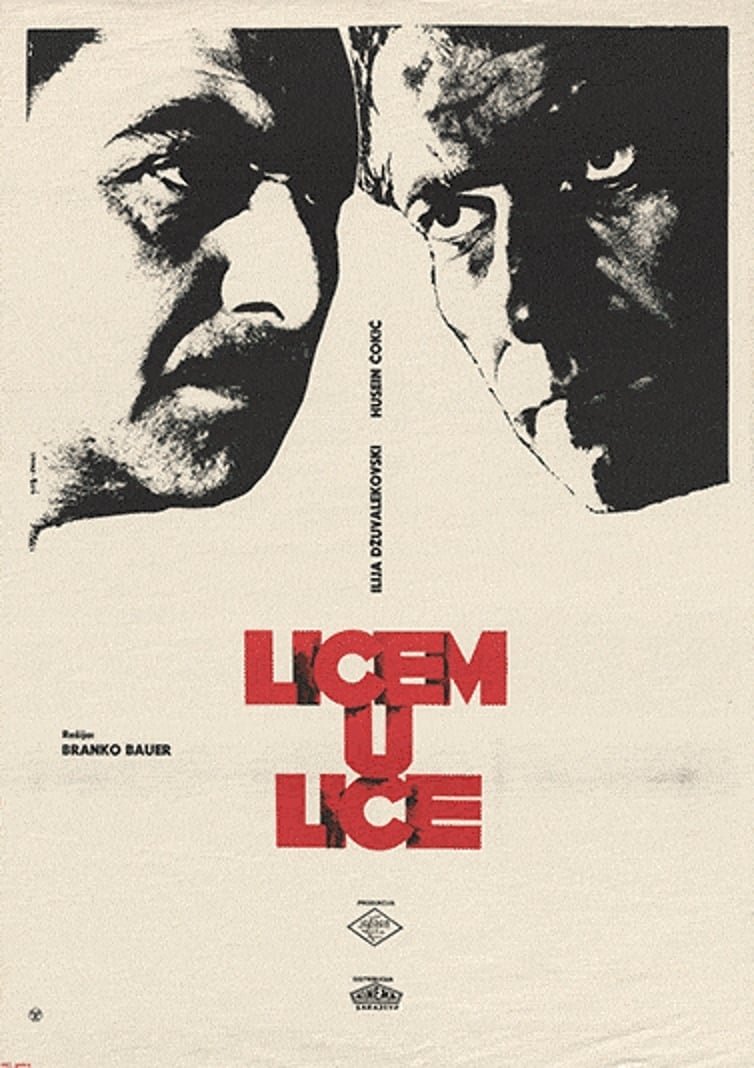Film Review: Face to Face (Licem u lice, 1963)

Branko Bauer, a Croatian director, stands as one of the most distinguished yet often overlooked figures in Yugoslav cinema. His reputation as an underrated auteur can largely be attributed to the fact that his most significant works emerged during the early post-World War II period. Unlike the celebrated authors of the Yugoslav Black Wave, who were known for their bold stylistic experiments and willingness to challenge the status quo, Bauer opted for a more restrained approach. Nevertheless, his contributions laid the groundwork for the movement that followed. His 1963 film, Face to Face, while not necessarily ranking among his finest achievements, is nonetheless a compelling entry in his oeuvre and offers valuable insights into the socio-political landscape of its time.
The plot of Face to Face is set within a state-owned construction company where a meeting of the local organisation of the League of Communists of Yugoslavia is about to take place. The primary focus of this gathering is the case of Milutin “Milun” Koprivica, portrayed by Husein Čokić, an idealistic worker at odds with the company's authoritarian chief executive, Voja Čumić, played by Ilija Džuvalekovski. The tension arises as Milun faces accusations of sending anonymous letters that criticise Čumić for favouritism and mistreatment of employees. As the meeting progresses, it becomes apparent that many participants are either apathetic or supportive of Čumić, suggesting that Milun's expulsion from the Party is inevitable. His impulsive decision to resign from the Party only exacerbates his predicament. However, Radovan, the newly appointed Party secretary portrayed by Vladimir Popović, insists on adhering to protocol despite his disapproval of Milun's actions. As discussions unfold, several Party members begin to voice dissent against Čumić, signalling a shift in momentum against the executive.
In the post-Communist era, Bauer faced accusations of being a filmmaker aligned with the regime. Face to Face provides substantial evidence for this perspective, as its content aligns closely with the official ideology of Communist Yugoslavia. The film promotes self-management socialism—a model developed after the Tito-Stalin split—emphasising decentralisation and participatory management in public enterprises. This approach was intended to be more democratic and less rigid than Soviet-style socialism. Through its narrative, Face to Face illustrates how this model functions in practice, depicting a scenario where individuals, regardless of their gender, age, education or position within company engage in collective decision-making. Despite their very human flaws, these characters ultimately strive to do what is right.
The release of Face to Face coincided with a reformist trend within Tito's regime during much of the 1960s. This period was marked by a relative liberalisation that influenced how films were received and critiqued. Official media reviews lauded Face to Face as “brave,” “groundbreaking,” and “uncompromising,” reflecting a climate that encouraged artistic expression within certain boundaries. The film even garnered recognition at the Golden Arena awards, underscoring its significance within Yugoslav cinema.
Interestingly, Bauer drew inspiration from Western cinema for Face to Face, particularly from Sidney Lumet’s acclaimed 1957 drama Twelve Angry Men. This influence is evident in Bauer's decision to structure his film around a single extended meeting and feature a strong ensemble cast. However, while Lumet’s film relies heavily on dialogue and character interactions, Bauer incorporates voiceover monologues and brief flashbacks to delve into characters' thoughts and motivations more deeply.
The performances in Face to Face are commendable overall, though there are variations in effectiveness among cast members. Husein Čokić delivers an intense and memorable portrayal of Milun that stands out against Ilija Džuvalekovski’s somewhat less impactful performance as Čumić. Vladimir Popović shines as Radovan, embodying a quiet yet contemplative Party secretary grappling with moral dilemmas. The younger actors also contribute positively; Božidarka Frajt excels as secretary Vera while Boris Dvornik portrays Andrija Mačkić—a young Party member whose evident disinterest signals an emerging generational divide within Yugoslav society during the 1960s.
Despite its initial acclaim and relevance at the time of release, Face to Face has since become somewhat dated. The subsequent climate of relative permissiveness allowed filmmakers in Yugoslavia to adopt more explicit critiques of societal issues and governmental authority. In contrast to these later works influenced by movements such as the French New Wave, Face to Face appears stylistically outdated.
Nevertheless, Face to Face remains a solid film that merits appreciation within its historical context. To fully grasp its significance and nuances, viewers must understand the socio-political environment in which it was produced—a time when Yugoslav cinema was trying to find its way between ideological constraints and burgeoning artistic expression. Through Bauer’s lens, audiences are offered a glimpse into both the strengths and limitations of self-management socialism while engaging with themes of individual versus collective responsibility—a dialogue that continues to resonate today.
RATING: 6/10 (++)
Blog in Croatian https://draxblog.com
Blog in English https://draxreview.wordpress.com/
InLeo blog https://inleo.io/@drax.leo
Hiveonboard: https://hiveonboard.com?ref=drax
InLeo: https://inleo.io/signup?referral=drax.leo
Rising Star game: https://www.risingstargame.com?referrer=drax
1Inch: https://1inch.exchange/#/r/0x83823d8CCB74F828148258BB4457642124b1328e
BTC donations: 1EWxiMiP6iiG9rger3NuUSd6HByaxQWafG
ETH donations: 0xB305F144323b99e6f8b1d66f5D7DE78B498C32A7
BCH donations: qpvxw0jax79lhmvlgcldkzpqanf03r9cjv8y6gtmk9
Posted Using InLeo Alpha